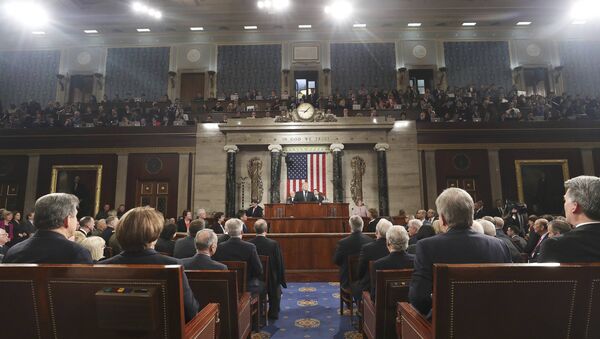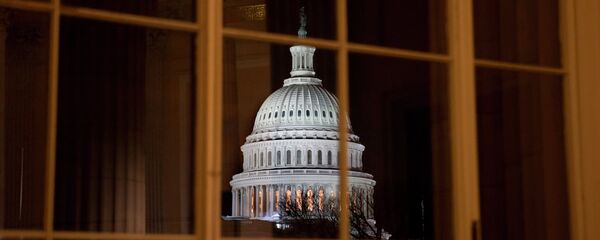Commenting on the move, Professor Viktor Kheifets of Saint-Petersburg State University highlighted that the proponents of the sanctions have yet to present any evidence to prove their claims that Moscow ever "interfered" in the US presidential election.
In accordance with the agreement, an amendment on Russia will be added to an Iran sanctions bill which is currently being considered by the US Senate.
Furthermore, the bill will include a provision that would prevent the White House from easing, suspending or ending sanctions without congressional approval, Reuters pointed out.
In addition, the measure would put into law sanctions established by a presidential executive order under Barack Obama, targeting some of Russia's energy projects and debt financing in some industries.
"The measure also would allow new sanctions against Russian mining, metals, shipping, and railways," the media outlet specifies, adding that the bill would impose new sanctions on Russians "found to be guilty of human rights abuses, supplying weapons to Syria's government and conducting cyber-attacks on behalf of Russia's government, among other things."
Speaking to Radio Sputnik, Kheifets underscored that by codifying the anti-Russian sanctions into law the initiators of the measure would create a long-term obstacle in the way of Russo-American relations.
"By now [the anti-Russian sanctions] have been implemented as an executive order which could be canceled anytime by the US president. If they are adopted as a federal law, it would require Congressional approval to abolish them. These sanctions could remain in place for decades. A classic [example] is the Jackson-Vanik amendment (which was created to exert pressure on the Soviet Union), which continued to exist long after the USSR had collapsed," Kheifets recalled.
"I didn't see their internal documents and was not present at all stages of their closed investigation. But judging from what I saw in the media, this couldn't be regarded as ample evidence. It would not work on the court," the academic said.
It appears that Congress has seized the initiative and now is exerting its will on the US administration, Kheifets suggested.
"The US Congress is independent enough from the executive branch and from the head of state, in particular, and can act quite autonomously," Kheifets noted, "Moreover, it can also sometimes impose its decisions on the head of state. I believe that this process is not orchestrated [by US President Donald] Trump. Whether one likes it or not the decision will be taken by Congress."
Reuters cited Senate Democratic Leader Chuck Schumer, who hailed the latest bipartisan deal against Russia and said: "These additional sanctions will… send a powerful and bipartisan statement to Russia and any other country who might try to interfere in our elections that they will be punished."
Commenting on the issue Monday, Russian Senator Alexei Pushkov noted that the bipartisan anti-Russian coalition is merely "obsessed" with Moscow.
"Left looking the fool after Comey's testimony, the anti-Russian coalition in the US Senate has decided to strike at relations with Russia through new sanctions. They're obsessed," Pushkov tweeted.
Оставшись с носом после показаний Коми, антиросс. коалиция в Сенате США решила ударить по отнош. с Россией через новые санкции. Одержимые.
— Алексей Пушков (@Alexey_Pushkov) 12 июня 2017 г.
However, to come into force, the bill would have to pass the House of Representatives and then be enacted by Trump.



